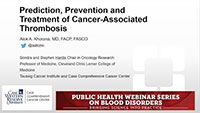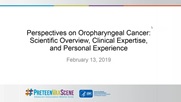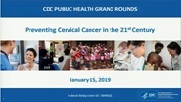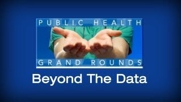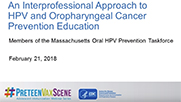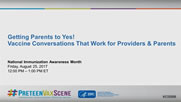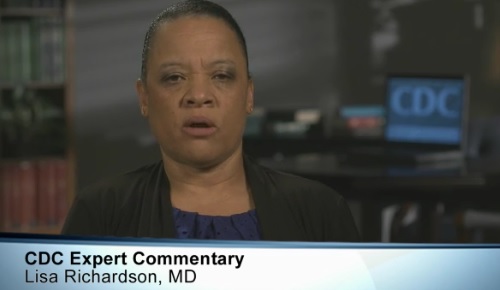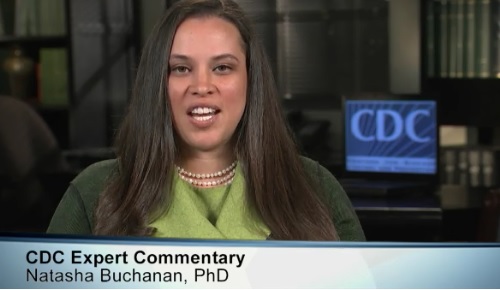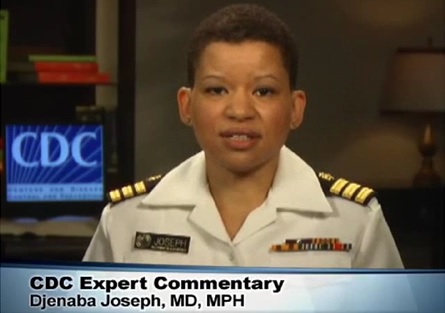Webinars and Other Videos
This webinar discusses the risk assessment tools used to identify patients at high risk for cancer-associated venous thromboembolism (VTE). It also discusses emerging data on biomarkers, guidelines for preventing VTE in cancer patients, and the best approaches to treat VTE in patients with an active malignancy.
Two experts explain the burden and epidemiology of oropharyngeal cancer, a clinical picture of the disease, and the importance of vaccination to prevent HPV infections. The webinar will also help listeners learn about oropharyngeal cancer through the eyes of a survivor.
Nearly 11% of breast cancer patients are under the age of 45. Improve the quality of care for your young patients by learning about the risk factors for early onset breast cancer, and the steps you can take to improve outcomes for patients at risk.
This session of Public Health Grand Rounds describes advances in cervical cancer screening and HPV vaccination efforts.
Dr. Phoebe Thorpe and Dr. Francisco Garcia discuss successes of community-based cervical cancer prevention.
Cancer survival in the United States is among the highest in the world, but Black Americans still face a disproportionate burden of lower cancer survival.
Note: Link requires free registration.
Learn about tools that health care providers can use to conduct distress screening with cancer survivors from Dr. Natasha Buchanan Lunsford.
Dr. John Iskander and Dr. Lisa Richardson discuss the need for a comprehensive approach to reduce UV exposure and promote policies that help prevent skin cancer.
In this webinar, members of the Massachusetts Oral HPV Prevention Taskforce explain how dental professionals can help their patients make informed decisions about oral health and cancer prevention.
Dr. Sharon Humiston, Dr. Nathan Boonstra, and Dr. Margot Savoy share their best practices for giving an effective recommendation, how to educate parents about HPV vaccine, what to do when parents decline or delay, and then highlight some useful resources.
These videos provide guidance and tools for clinicians on the optimal ways to implement screening for colorectal cancer to help ensure that patients receive maximum benefit. There are two versions of this course: one for primary care providers and one for clinicians who perform colonoscopy.
The most important thing that Americans who smoke can do to lower their risk for lung cancer is to quit smoking. However, early detection by screening is another important strategy for patients in whom the risk for lung cancer is high.
Note: Link requires free registration.
The cancer experience may cause new psychosocial distress or exacerbate existing emotional, behavioral, or cognitive health concerns. Several organizations have recognized that quality cancer care includes addressing the patient’s psychosocial needs.
Note: Link requires free registration.
In this session of Grand Rounds, experts explain how cancer genomics programs are working together to conduct surveillance and educate the public and health care providers about hereditary cancer syndromes.
We are falling short of the Healthy People 2020 target of 70.5% of adults being up-to-date with colorectal cancer screening. Most often, patients are only offered colonoscopy as a screening test option. But studies have shown that many people would prefer a different test option.
Note: Link requires free registration.
Dr. John Iskander and Dr. Lisa Richardson discuss how establishing a patient’s family history can help health care providers identify genetic mutations that may lead to cancer.
In this session of Grand Rounds, experts discuss skin cancer prevention and control, with particular attention to how we can help people protect their skin and their lives while enjoying the outdoors.
This session of Grand Rounds explored the burden of human papillomavirus (HPV)-associated cancer and disease in the United States and prevention through HPV vaccination.
Dr. Lauri Markowitz highlights how providers can help by sending reminders, arranging quick visits, and promoting anti-cancer vaccine.
